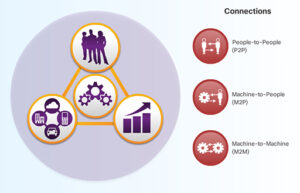How To Become A Tax Preparer Your Complete Guide
Do you find the world of finances and taxes fascinating? For you, a career as a tax preparer might be the best fit. Tax preparers are essential to maintaining compliance with tax rules and regulations since they handle everything from helping clients file their taxes to offering professional guidance. Whether you choose to work as a tax preparer full-time or as a seasonal employee with flexibility, there are a lot of options for career progress and enjoyment. We’ll incorporate the knowledge from both strategies into one thorough handbook to provide you all the information you need to start this fulfilling journey.
Understanding the Role of Tax Preparer
A tax preparer guarantees that clients’ taxes are in accordance with all applicable federal, state, and local regulations in addition to filling out tax forms for submission to the IRS. Early January to mid-April is tax season, and that’s when they usually get the most business. Tax preparers may serve both individuals and businesses as clients, however others specialize in serving employers only. Tax preparers have the option to become IRS certified or not, albeit the clients they serve may differ based on their unique qualifications. IN addition to filing tax returns, credentialed tax preparers, including tax attorneys, registered agents, and CPAs, can defend clients in court proceedings, audits, and other tax-related concerns with the IRS.Tax preparers receive sensitive personal data from people about their yearly income, dependents, marital status, and payroll deductions for Social Security and Medicare. As a result, tax preparers must maintain organization and give their clients’ privacy a priority.
Steps to become a tax preparer
Get the required education
For many tax preparation firms, the minimal educational need is a high school diploma or GED. If at all feasible, concentrate your coursework in writing, math, and/or business-related courses as these will probably come in handy for your professional life.
You may also wish to finish your college education. Although a bachelor’s degree is rarely required by tax preparation firms, having one can help you become eligible for a number of opportunities in this field. If you decide to go to college, you might want to major in something important, like accounting.
Learn more about Tax topic 152
Obtain the necessary training
Tax preparation classes are offered by community colleges and technical schools, and they can help you grow in your profession. You can work with a tax employee or trainer to complete on-the-job training. The National Association of Tax Professionals and the Accreditation Council for Accountancy and Taxation are other resources for obtaining accreditation.
Get PTIN From IRS
To practice as a tax preparer, you’ll need a Preparer Tax Identification Number (PTIN) from the IRS. This can be obtained by completing an application and undergoing a screening process.
Complete the State Licensing Requirements
In some states, tax preparers need to obtain licenses specific to their state in addition to their PTIN, like California, Connecticut, and New York. State-specific licensing requirements could involve finishing extra coursework or passing an examination. To guarantee compliance, make sure to review the rules in the state where you intend to work.
Gaining Experience
Experience in the real world is quite useful when it comes to tax preparation. To develop your abilities and obtain practical experience, think about internships, on-the-job training, or volunteering with organizations like Tax Counseling for the Elderly (TCE) and IRS Volunteer Income Tax Assistance (VITA). Making important connections with industry professionals through networking can also lead to mentorship and career growth opportunities.
Staying Updated
Since tax rules and regulations are always changing, tax preparers must continue their education. Take advantage of professional development opportunities, workshops, and continuing education courses to stay up to date on changes in tax laws. Keeping your expertise current guarantees that you can give your clients accurate and trustworthy recommendations.
Developing Your Career in Tax Preparation
Promoting Your Services
The next critical step is to sell your services effectively after completing the training and certification needed to become a tax preparer and gaining real-world experience. A deliberate strategy to communicate is necessary to develop a successful clientele, one that emphasizes your special skills, background, and value to prospective customers. Whether it’s through networking, internet marketing, or word-of-mouth recommendations, selling your services well is essential to starting and expanding your tax preparation business.
Establishing professional connections via networking is an additional essential element of a prosperous career in tax preparation. Participating in professional forums, attending conferences, and joining industry groups can offer beneficial chances for education, networking, and client recommendations. Networking promotes a culture of support, knowledge exchange, and ethical practice while assisting in professional development and fortifying the tax preparation community.
Demonstrate high Ethics and Confidentiality
Tax preparers manage delicate financial data that their clients entrust to them. They have to uphold the greatest standards of integrity, confidentiality, and moral behavior. To safeguard the interests of their clients, they must guarantee compliance with privacy legislation and secure client data.
Become knowledgeable about tax software
For tax preparers, tax software is an essential tool that expedites the process and improves accuracy and efficiency. Understanding a tax software’s user interface, data entry features, and variety of forms and spreadsheets for various tax circumstances are essential to become proficient with it. Tax preparers can reduce errors, accelerate the preparation process, and deliver clients accurate and timely tax returns by mastering tax software.
Conclusion
In conclusion, becoming a tax preparer offers a fulfilling career path with numerous opportunities for growth and advancement. By acquiring the necessary education, training, and certifications, and staying updated on tax laws, you can establish yourself as a trusted professional in the field. Building experience, promoting your services effectively, and maintaining high ethical standards are crucial for success. Embracing continuous learning and leveraging tax software can further enhance your efficiency and accuracy, ensuring client satisfaction and long-term success in the tax preparation industry














Post Comment